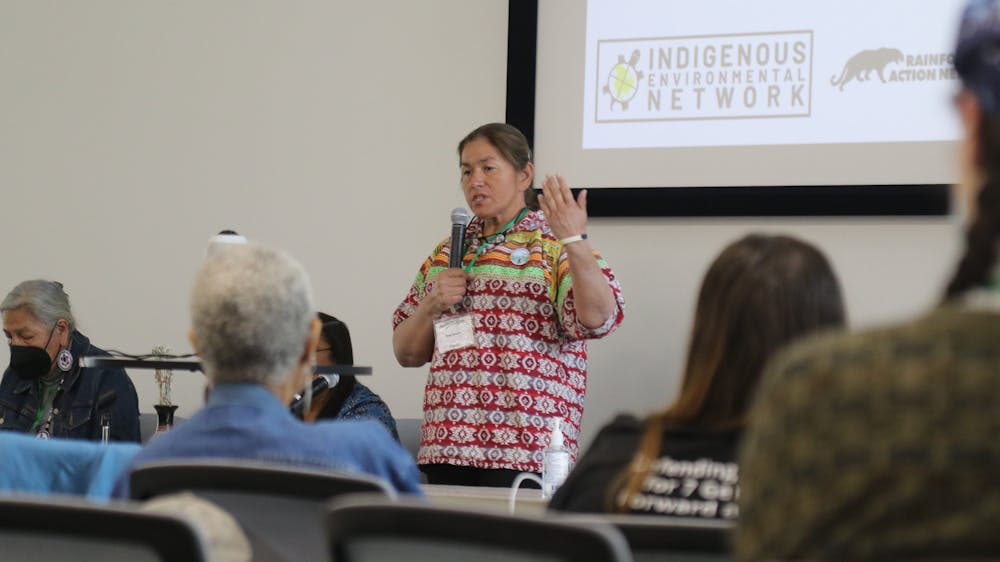Omega Wilson grew up knowing his ancestors were under his feet.
Wilson was raised on the narrow dirt path of Kimrey Road in Mebane, which borders the Great Trading Path — a highway of Indigenous trade spanning from Virginia to South Carolina.
At that time, the area was mainly fields and pastures for the dairy farms, full of pecan and oak trees. In between the farms and distant houses on the dusty road, and just 100 feet from his house, there was a ravine. Wilson grew up being told it was the drag trail — deep, parallel tracks left on the ground by travois, which were sled-like structures used for transporting goods and people across the land.
It was common to find flint and stone arrowheads scattered along the backyard garden of his grandparents, Samuel and Lizzie Carr.
When his family was digging in the front yard to do some renovations, they came across two graves. Wilson saw the structure of their faces and hair, and there was clay covering them over the burial site. White flint arrowheads were placed around their heads.
"About 100 or 200 feet from the drag trail, there were graves. There were two graves that were found," Wilson said. "It was very apparent. … When we found them, we covered them back up."
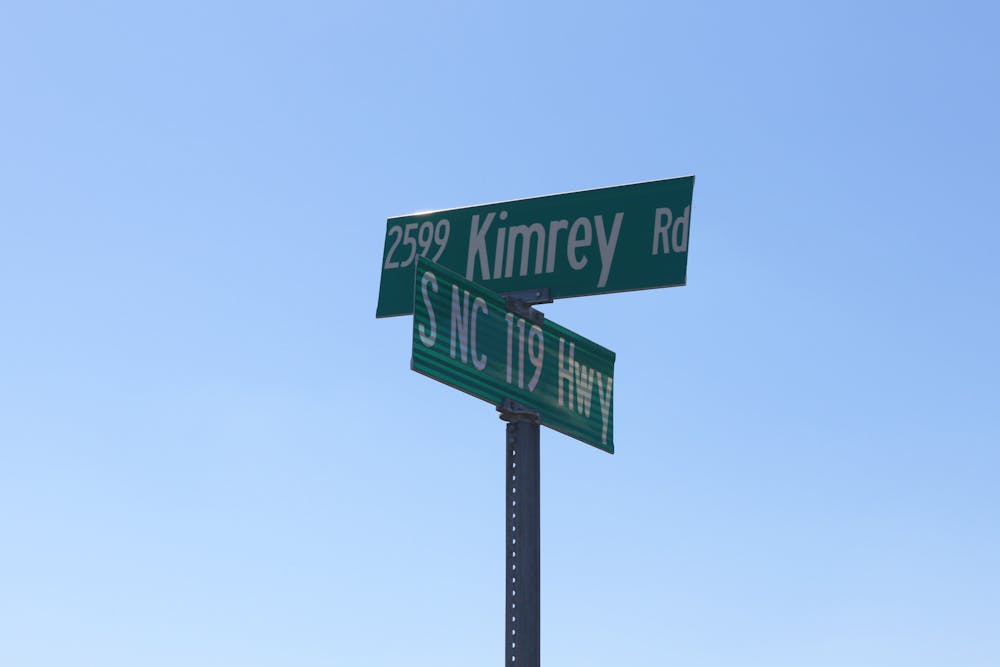
Later, when North Carolina decided to pave Kimery Road to hold school buses and dairy trucks, the construction unveiled layers of history hidden just seven feet beneath the surface.
Wilson saw fireplaces, artifacts and bones in the construction, and his father even found an intact clay pipe.
“That was something that wasn't uncommon to us,” Wilson said. “It was just a part of what we saw.”
The Great Trading Path
Wilson remembers backlash when the roads were being developed more than 60 years ago. There was a small paperback book written by a historian that his cousin showed him describing the historic land and expressing concern over its destruction.
Just a few years ago, people from neighboring farms came to Wilson and asked what his family had seen on the land. Just like Wilson, the neighbors had been collecting arrowheads, hatchets and other artifacts from the land for years.
The neighbors shared that when they came across graves in the farms, which they often would, they would plow around them.
Now, however, that land houses a Walmart distribution center, a Lidl regional distribution center and an Amazon fulfillment center.
“They knew what some of these sites were because they owned the land, and they were concerned about these areas being totally destroyed by some of the mega industrial and distribution and highway construction that is going on right now,” Wilson said.
Since the 1670s, the Occaneechi Band of the Saponi Nation used this trail to transport fur and deerskin, braiding the cultures of Indigenous people along the Southeast.
“Now, most of that area, the visibility, has been destroyed,” Wilson said.
In January 2024, the Mebane City Council approved the development of mega-gas station corporation Buc-ee’s, comprising 32 acres and 120 gas pumps, to be built at 1425 Trollingwood-Hawfield Road — directly on the Great Trading Path.
On Jan. 8, 2024, Coda Cavalier watched as the Buc-ee’s developers spoke for three hours about the project at the Mebane City Council meeting, their excitement draining as one woman discussed how they tested the land for Native American history and found nothing.
It was past midnight when Cavalier finally got to speak.
They were tired — it had been six hours of listlessly waiting in the overflow room, watching the meeting on a screen.
It was their first time at a local government meeting. They said they went into the experience excited to speak about the Great Trading Path, which many people had no idea about.
“That was one of the biggest takeaways that I remember from that night is people just don't know the history, and so that's my biggest goal is to let more people know the history of why this trading path is so important to us,” Cavalier said.
Finally, it was Cavalier’s turn to speak. They were one of the last ones to be called up that night. Cavalier only had three minutes to speak, so she knew she had to make it count.
Yet, they left at 1 a.m., and the Buc-ee’s was approved by the Mebane City Council by 2.
“It's not just a trading path, or it's not just a historical thing, but it still has ties to our people today,” Cavalier said.
The fight against Buc-ee’s
Cavalier is the youth coordinator for 7 Directions of Service, a nonprofit organization dedicated to advocating for Native land and rights, particularly for the Occaneechi Band of the Saponi Nation, whose land stretches across Alamance County.
“We started to realize that there's a whole lot of issues here in North Carolina that affect all sorts of people, not just Native people, but Black and brown people, low income people, so we started that organization as a way to kind of get our foot in the door, get a solid say, a solid organization, nonprofit going so we can have events to help people get educated and aware, and to also do more work in our community,” Cavalier said.
The organization was founded by Crystal Cavalier-Keck and Jason Crazy Bear Campos-Keck — Cavalier’s parents — in 2021. Though the Buc-ee’s was approved by the city council over a year ago, 7 Directions has been advocating against the development through door-to-door canvassing and community meetings, as well as social media campaigns, to make people aware of the project.
Dominique Daye Hunter, cousin of Cavalier-Keck, is a community member of the Saponi of Granville County. The tribe is relationally recognized, meaning they do not have state or federal recognition but are recognized by the six other Saponi communities, including the Occaneechi Band.
Hunter published her first book, "Seeds: Stories of Afro-Indigenous Resilience,” in 2022 and has a combined total of over 10,000 followers on Instagram and TikTok. In January, one of Hunter’s TikToks went viral — garnering 23.3k views and 578 comments.
The TikTok was sharing information about how Buc-ee’s is being built on the Great Trading Path. Since the TikTok was posted Jan. 12, the signatures on the 7 Directions petition tripled.
“I'm just seeing hundreds and hundreds and hundreds of comments just like, ‘I had no idea that this was either happening or coming or about Buc-ee’s,’ and that it's awful, and people are signing the petition to stand against it,” Hunter said.
Even when people are excited about the development, they are commenting their support.
“We can kind of reach this middle ground as human beings and understanding, where there's a line drawn when your ancestors' literal remains are being disturbed,” Hunter said.
Hunter said while canvassing and community meetings are extremely helpful to spreading the word, nothing can compete with social media.
“7 Directions continues this tireless work, but for all of their work, for one TikTok video to be able to do all that work is just simply invaluable because as Indigenous people, we already have very little capacity to do what we do, and our voices are very under heard,” Hunter said. “They're engaged through social media. It's so invaluable for people to be able to know what's going on in their own state and community and backyard, and social media, especially TikTok, has been extremely valuable.”
7 Directions of Service hosted the Southeastern Indigenous Coalition Environmental Conference March 7 and 8 to gather Indigenous communities and offer a space to discuss issues they are currently facing.
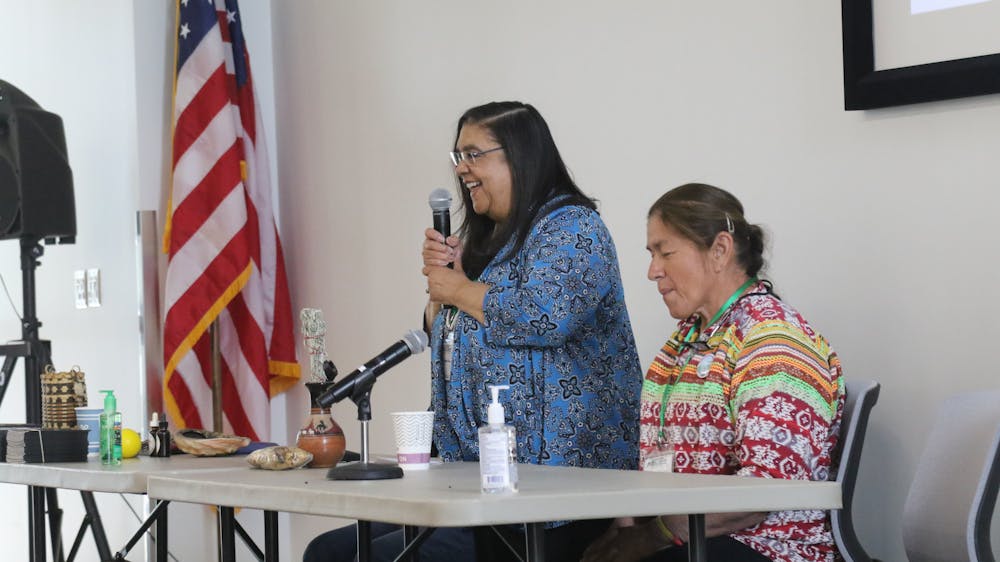
Cavalier-Keck and Campos-Keck traveled the world for similar conferences and decided there was a need for something similar in North Carolina.
According to Campos-Keck, the conference brought together 200 attendees, both in person and online, representing 15 tribes from around the world. Panels included traditional ecological knowledge, land and resource sovereignty, food sovereignty and sustainable agriculture, climate change and indigenous resilience, cultural landscapes and sacred sites protection, and youth leadership in environmental justice.
Campos-Keck said the intention of the conference was to bring communities together to discuss issues they all are facing, including water and food scarcity, modern medication and losing a connection with nature.
“It's about sharing with other communities because we understand that anything we preserve, anything we solve, we're doing it for the benefit of all, and we're doing it,” Campos-Keck said. “It has to be done together, and so we can't be divided in this.”
One of the panels — Cultural Landscapes and Sacred Sites Protection — discussed the upcoming development of the Buc-ee’s. Kam Watkins, Indigenous organizer of 7 Directions and member of the Occaneechi-Saponi Tribe, was one of the panelists.
“We all have blood on the soil. We have tears dropped on the soil, and to just bypass it, and to and to not take thought, take heed into everything that's been going on is very detrimental, because they don't want us here, to be recognized,” Watkins said during the panel. “They don't want to understand us at all.”
Cavalier-Keck, 7 Directions co-founder and moderator of the panel, brought up the UPS and Amazon warehouses already in the city.
“Of course, our greedy town of Mebane was like, ‘Our motto is positively charming,’ but it's not really positively charming,” Cavalier-Keck said during the panel. “Those mega warehouses where they built all of these things is right smack-dab on the drag trail.”
Cavalier-Keck also recalled the Mebane City Council meeting when they voted on the development in January 2024, when one of the council members asked, “Why do you care now?”
“They did this whole dog and pony show knowing that they were going to vote yes for it,” Cavalier-Keck said. “Just why do you even have a comment period if you already made your mind up? That really just pissed me off.”
Cavalier-Keck also had a similar reaction to a new Target being built along Trollingwood-Hawfield Road, which will open in 2026.
“My God, do we need any more crap in the city? Like, I'm not against development, but they are building right on our section, right?” Cavalier-Keck said. “Put it somewhere else.”
With nearly 2,000 people moving to the city from 2020 to 2023, Mebane is the fastest growing city in the Triad — an increase of 10% — according to the U.S. Census.
Mebane mayor Ed Hooks declined an interview with Elon News Network but said in a statement that the claims of Native American history were false.
“The topic about the land came up during the meeting with no facts, or proof that it existed. The developer had researched with the state and feds to see if this indeed a fact,” Hooks wrote. “It was interesting they did not show up months earlier when we initially approved the land as industrial with 3 large industrial buildings.”
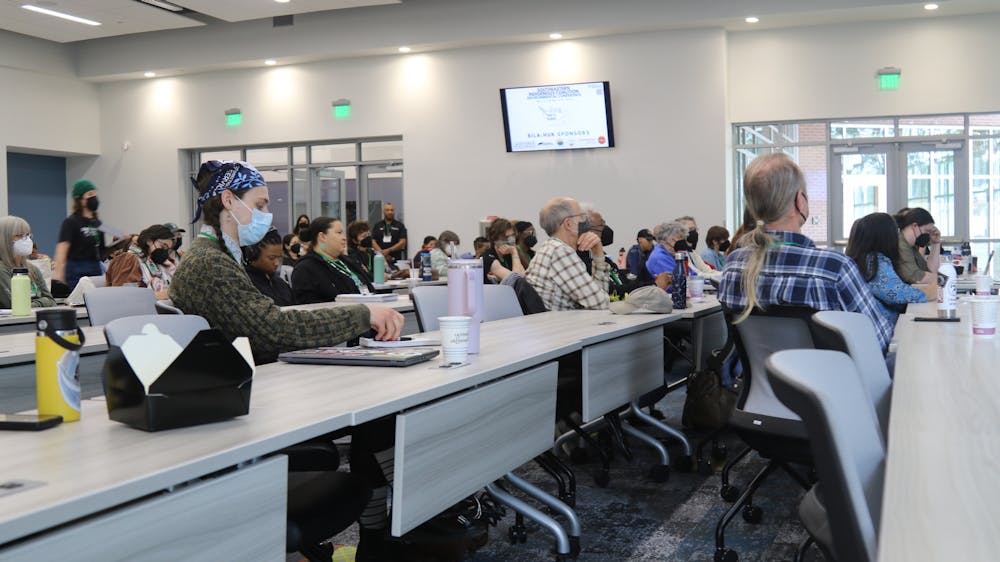
Next steps
Construction for Buc-ee’s will begin in the coming weeks and will take about 18 months to finish, opening in early 2027, according to Hooks. Originally, the gas station was set to open in 2025 but was delayed due to road construction that will accommodate more traffic. The road construction project will cost about $38.7 million, and Buc-ee’s will pay $10 million of that cost.
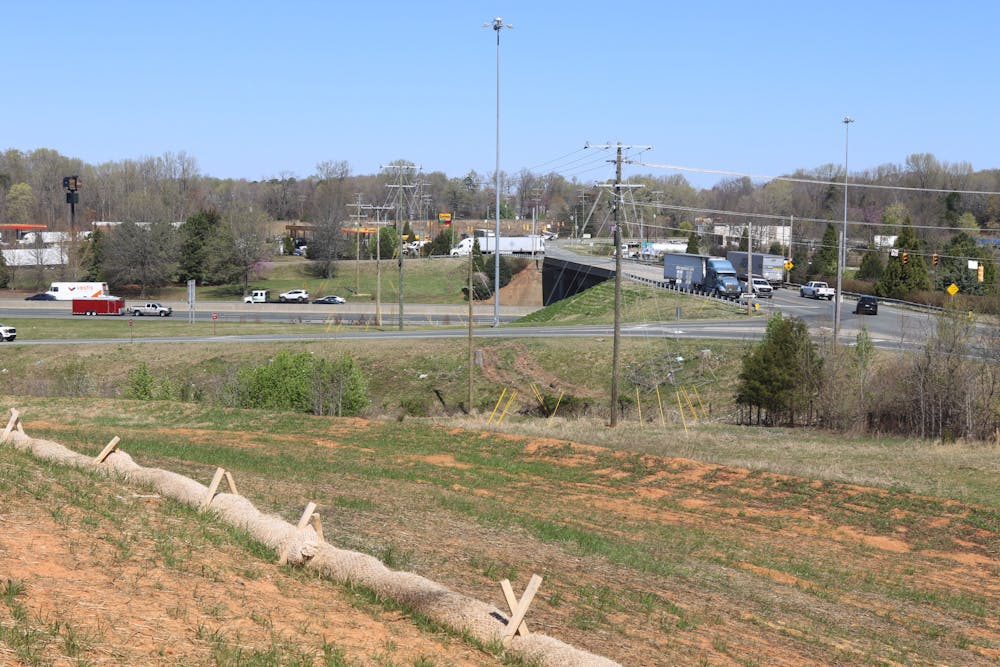
The station will hire about 225 employees with wages starting at $18 per hour, according to the presentation shown at the January 2024 Mebane City Council meeting. Buc-ee’s could add an estimated 1,000 to 1,500 additional vehicles through Trollingwood-Hawfields Road on weekdays and 2,300 on Saturdays.
Beverly Payne of the Occaneechi Band of the Saponi Nation encourages people to continue to speak out but be conscious about it.
“It looks bleak unless our people stand up, unless needed people stand up and stand out,” Payne said. “We just have to be smart.”


